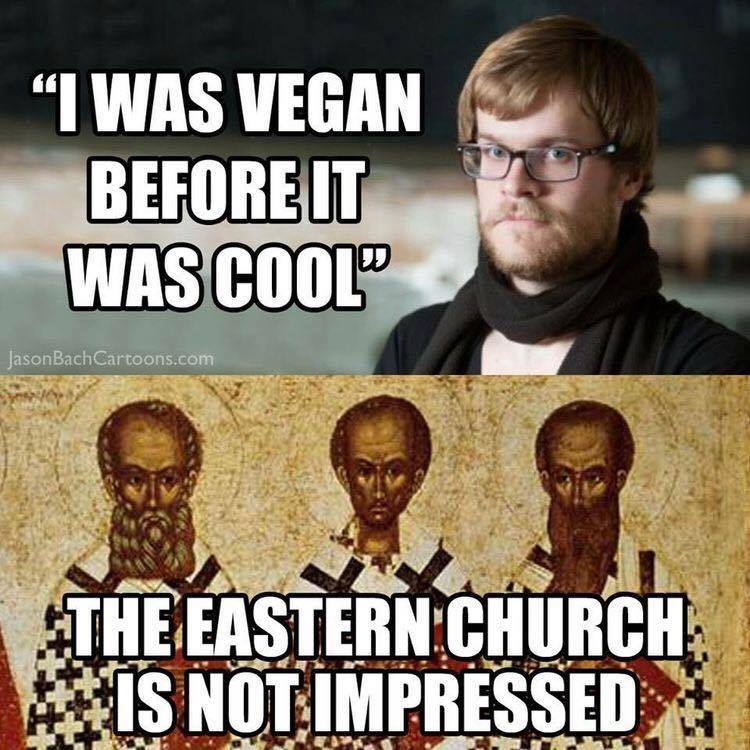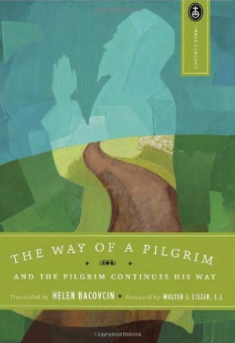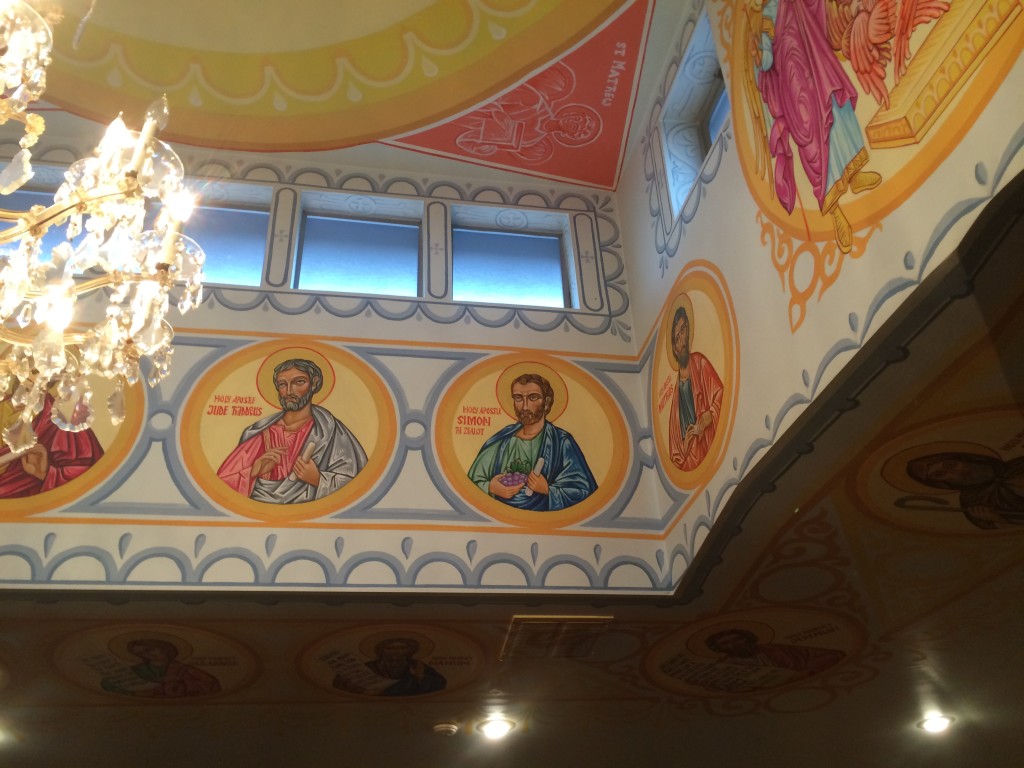Tag: Eastern Christianity
Introduction to the Divine Liturgy
Friday Frivolity: Lent is coming…

Eastern Fathers on Prayer
 Given that I attend an Eastern Rite Church, I suppose that it’s no great surprise that I love the Eastern Fathers of the Church. In light of this, I wanted to share a video of a presentation given by Joseph Heschmeyer (soon to be Deacon Joseph Heschmeyer), about the Eastern Fathers on the subject of prayer:
Given that I attend an Eastern Rite Church, I suppose that it’s no great surprise that I love the Eastern Fathers of the Church. In light of this, I wanted to share a video of a presentation given by Joseph Heschmeyer (soon to be Deacon Joseph Heschmeyer), about the Eastern Fathers on the subject of prayer:
Book Review: The Way of a Pilgrim

 I’ve been getting through lots of books recently. I’ve been intending to write reviews for each of them, but have been procrastinating. Therefore, over the next few days I will be publishing a review for each of the books I have recently read.
I’ve been getting through lots of books recently. I’ve been intending to write reviews for each of them, but have been procrastinating. Therefore, over the next few days I will be publishing a review for each of the books I have recently read.
Today I’d like to begin by talking about “The Way of a Pilgrim”. This review is also published on Amazon.com.
This book is well-known in eastern Christian circles and had been recommended to me by Eastern Orthodox and Eastern Catholic friends for several years, but I somehow never never quite managed to find the time to read it.
However, soon after returning to San Diego last month, it was announced that my parish would be beginning a study of this book during the Advent season. This gave me the extra bit of motivation I needed to buy this book and was subsequently very quickly hooked, finishing it in just a few days. Here’s how the book begins:
“By the grace of God I am a Christian, by my deeds a great sinner, and by my calling a homeless wanderer of humblest origin, roaming from place to place”
– The Way of the Pilgrim
I’m sure you can understand why this Restless Pilgrim loved these opening words!
Symbolism: Simon’s Grapes

So a couple of weeks ago at Matins, I looked up into the dome of our church and saw the icon of Simon the Zealot. In the icon, you can see that he’s holding some grapes. Why is this symbol associated with this Apostle?

Fortunately, I recently spent some time with an iconographer and I asked him about their significance. He pointed out that Simon “the Zealot” is also known as Simon “the Canaanite” and that there is a tradition in the East that this Simon was the groom at the wedding in Cana towards the beginning of John’s Gospel. The grapes are a reference to the miracle the Lord performed there, turning water into wine.
With more probability, Baronius, following Nicephorus (Hist. l. 8. c. 30), thinks that the bridegroom at this marriage was the Apostle Simon, who was surnamed the Cananite from Cana.
– Cornelius La pide
The commentator Cornelius then goes on to make a very interesting comment which I think has some interesting implications:
As soon as Simon had seen this miracle of Christ at his wedding, he bade farewell to his bride and the world, and followed Him, and was chosen to be one of His twelve Apostles. This was the reason why Christ came to this wedding; and by coming, indeed, honoured marriage; but by calling him to Himself, He showed that celibacy and the apostolate were better than marriage.
– Cornelius La pide
How to make an icon
 Have you ever wondered how icons are made?
Have you ever wondered how icons are made?